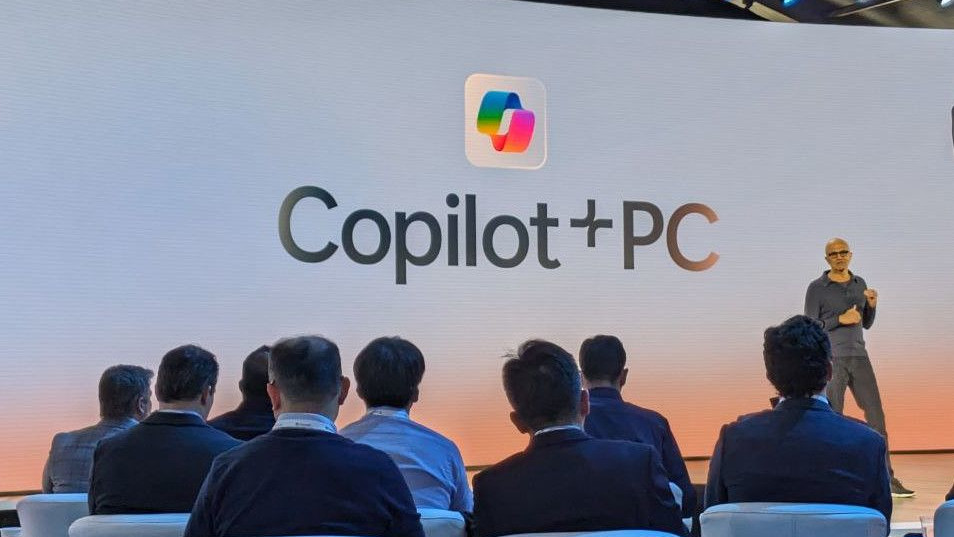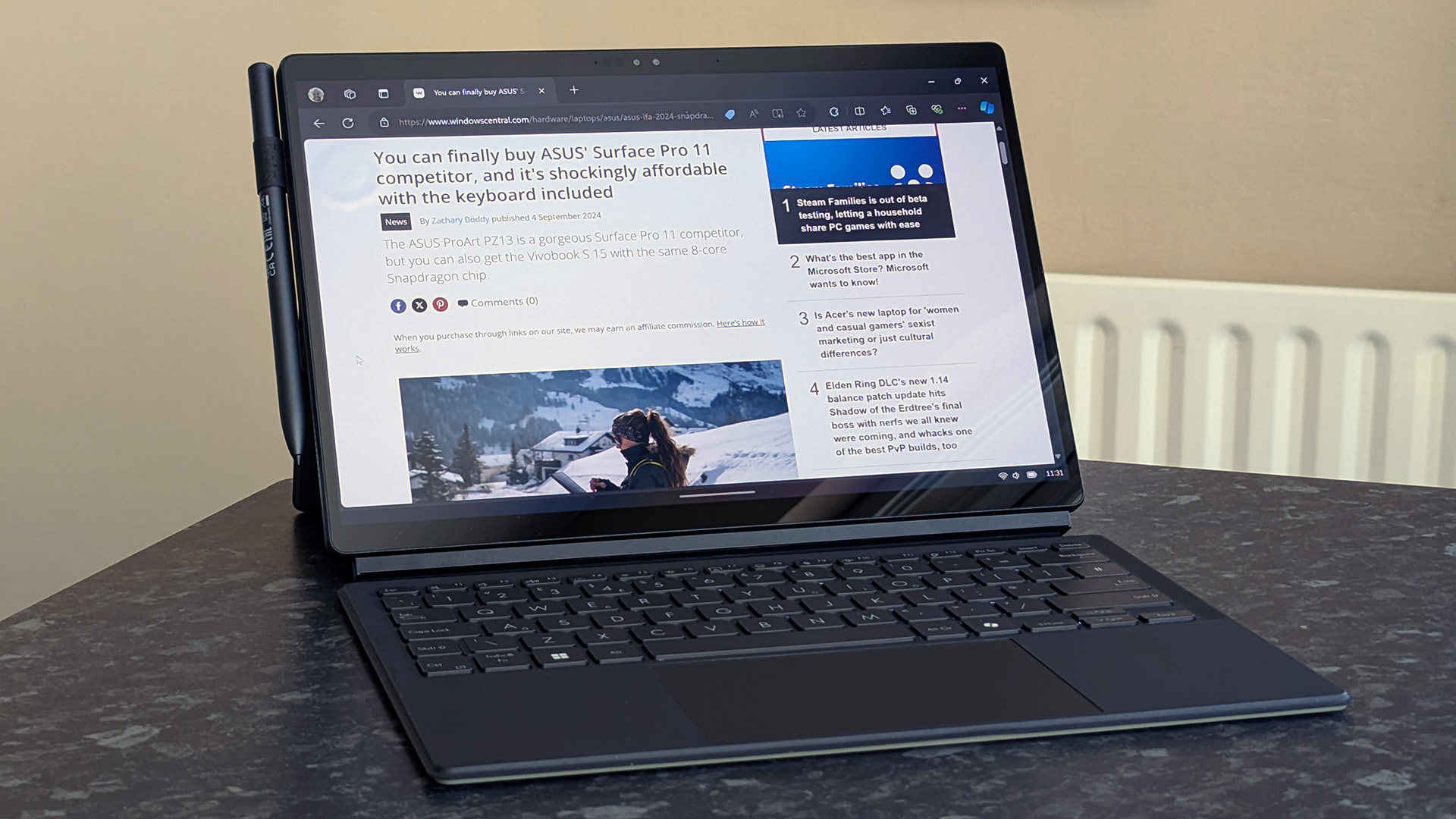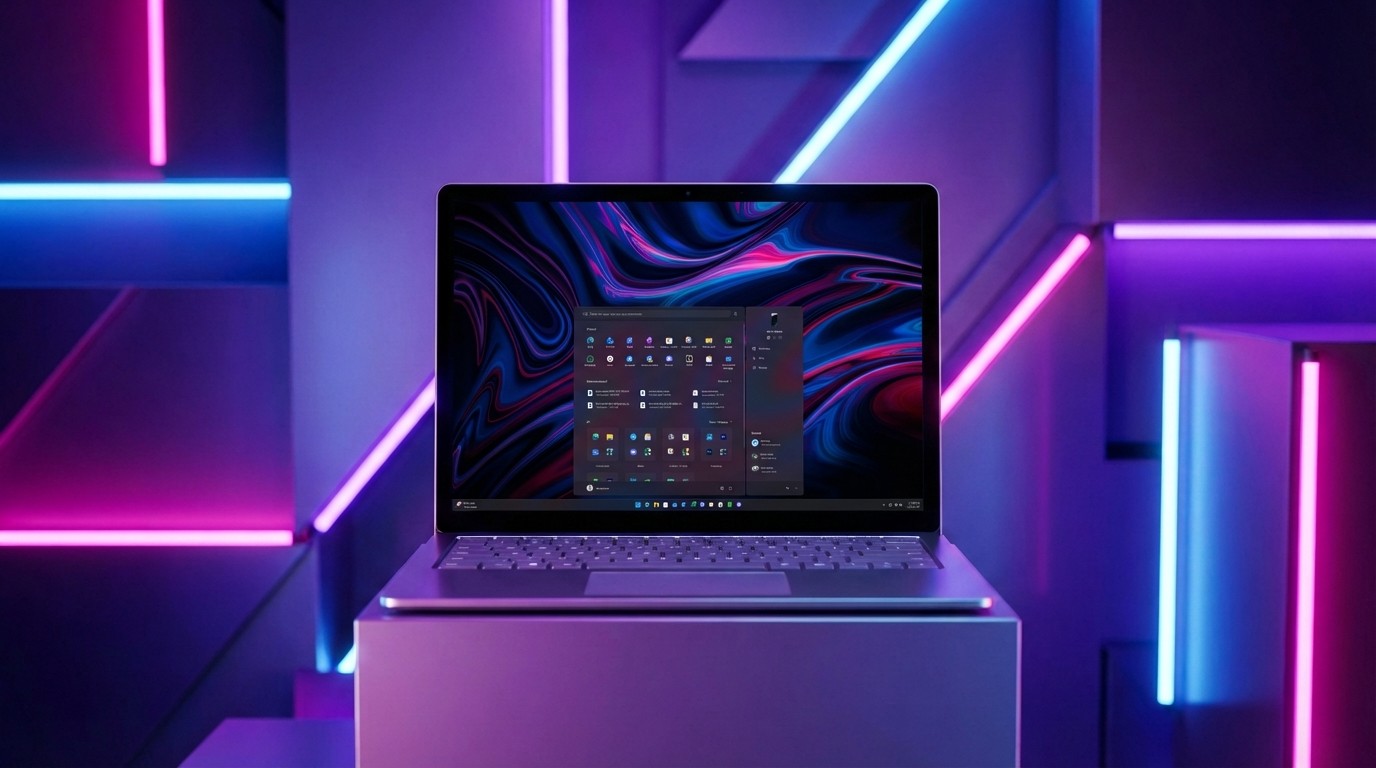Generative AI isn't pushing Microsoft Copilot+ PC sales — a dire need for future-proof upgrades coupled with Windows 10's imminent death is
Consumers are buying AI PCs because of their need to upgrade and purchase new devices, not for their sophisticated capabilities, says IDC.

All the latest news, reviews, and guides for Windows and Xbox diehards.
You are now subscribed
Your newsletter sign-up was successful
What you need to know
- According to IDC, the growing shipment of AI PCs isn't driven by the AI capabilities in these devices but by the consumer's need to upgrade and purchase future-proof devices.
- The institution claims the marketing strategy for AI PCs doesn't categorically spell out the importance of these AI capabilities, highlighting specific use cases.
- Tablet sales are also expected to grow by 7.2% due to a refresh cycle and project investments in 2024 compared to traditional PCs, but the hype will be short-lived as smartphones become more powerful and the tablet's capabilities continue to be limited compared to the PC.
The PC market is well on its way to recovery post the COVID-19 pandemic, especially after global shipments have grown by 3% consecutively in Q1 and Q2 of 2024 — translating to 64.9 million units. Market analysts and experts predict more growth, attributed an AI PC jolt, Windows 10's end of support in October 14, 2025, and more.
However, new research by the International Data Corporation (IDC) indicates that it's not the built-in AI capabilities that drive global PC shipments. On the contrary, the institution claims the broad adoption of AI PCs, specifically Microsoft's Copilot+ PCs, is driven by the sole need to buy new computers coupled with the desire to upgrade existing laptops.
According to Worldwide Mobile Device Trackers research manager Jitesh Ubrani:
“While AI has been a buzzword of late, it has yet to be a purchase driver among PC buyers. Businesses certainly recognize the importance of AI though many struggle to see the immediate use case and instead are opting for AI PCs as a means to futureproofing."
Ubrani further claimed that most consumers don't fully appreciate the capabilities that a dedicated neural processing unit (NPU) bring to the table in an AI PC.
As most laptop manufacturers are seemingly hopping onto the AI bandwagon with new products featuring cutting-edge capabilities, it's increasingly becoming crucial for them to spell out the importance of on-device AI capabilities while simultaneously highlighting everyday use cases.
Microsoft's marketing team has been doing exceptionally well on this front, but there's still more work that needs to be done. But in the grand scheme of things, global PC shipments are on an upward trajectory.
All the latest news, reviews, and guides for Windows and Xbox diehards.
Tablets are seemingly more appealing to consumers than standard PCs
While more consumers subtly hop onto the AI PC bandwagon with projections of accelerated shipments through 2026, traditional PC global shipments are expected to remain flat in 2024, with 261 million units shipped. However, the traditional PC market is expected to grow by 2.8%, excluding China, which is currently undergoing tough economic times.
Personal computing devices are expected to grow by 2.6%, translating to 398.9 million units. Perhaps more interesting, the tablet market is expected to grow significantly by 7.2% "as a refresh cycle and project investments are expected to drive the market." Large-screen real estate and better performance on flagship tablets are also making consumers more inclined toward these devices, coupled with the aggressive enthusiasm shown by Android vendors.
According to Senior Research Analyst with IDC's Mobility and Consumer Device Trackers Anuroopa Nataraj:
"The first half of 2024 showed how aggressive some of the Android vendors have been in competing in the tablet market, maximizing on the opportunities for sustainable demand for tablet devices in emerging regions such as Asia/Pacific (excluding Japan), the People's Republic of China (PRC), and Central and Eastern Europe. Adoption rates are expected to climb in the short term as the market continues to evolve with newer tablet models with upgraded chips, larger screens, and connectivity. And the device replacement cycle is only going to push the growth further."
Nataraj predicts that the hype around flagship tablets will be short-lived because of the availability of more capable and powerful smartphones and their limited functionalities compared to sophisticated PCs.
🎃The best early Black Friday deals🦃
- 🕹️Xbox Game Pass Ultimate (3-months) | $31.59 at CDKeys (Save $17!)
- 💻Samsung Galaxy Book4 Edge (X Elite) | $899.99 at Best Buy (Save $450!)
- 🎮Razer Wolverine V2 Chroma (Xbox & PC) | $99.99 at Amazon (Save $50!)
- 🕹️Starfield Premium Upgrade (Xbox & PC) | $27.69 at CDKeys (Save $7!)
- 💻ASUS Vivobook S 15 (X Elite) | $955 at Amazon (Save $345!)
- 🕹️Final Fantasy XVI (PC, Steam) | $43.79 at CDKeys (Save $6!)
- 💻Lenovo ThinkPad X1 Carbon | $1,481.48 at Lenovo (Save $1,368!)
- 🎮 Seagate Xbox Series X|S Card (2TB) | $249.99 at Best Buy (Save $110!)
- 🕹️Hi-Fi RUSH (PC, Steam) | $8.49 at CDKeys (Save $22!)
- 💻HP Victus 15.6 (RTX 4050) | $599 at Walmart (Save $380!)
- 🫙Seagate HDD Starfield Edition (2TB) | $79.99 at Best Buy (Save $30!)
- 🖱️Razer Basilisk V3 Wired Mouse | $44.99 at Best Buy (Save $25!)
- 🕹️Days Gone (PC, Steam) | $10.19 at CDKeys (Save $39!)
- 🖥️Lenovo ThinkStation P3 (Core i5 vPro) | $879.00 at Lenovo (Save $880!)

Kevin Okemwa is a seasoned tech journalist based in Nairobi, Kenya with lots of experience covering the latest trends and developments in the industry at Windows Central. With a passion for innovation and a keen eye for detail, he has written for leading publications such as OnMSFT, MakeUseOf, and Windows Report, providing insightful analysis and breaking news on everything revolving around the Microsoft ecosystem. While AFK and not busy following the ever-emerging trends in tech, you can find him exploring the world or listening to music.

